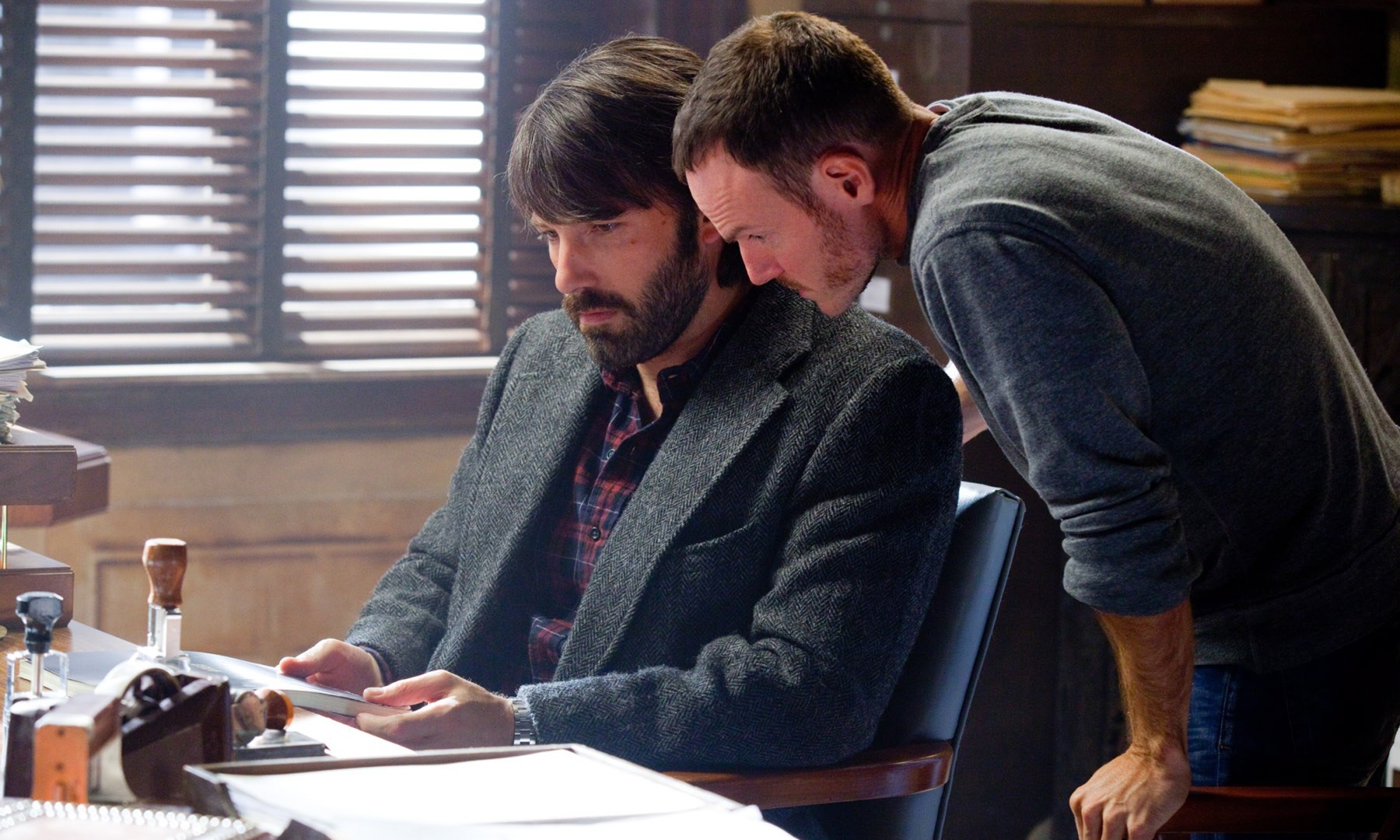This article appeared in the Dec. 12 issue of AwardsLine.
Hearing that an Oscar-winning screenwriter has just signed on to direct the highest-profile script of your career could be somewhat nervewracking. But for Argo’s Chris Terrio, working with director Ben Affleck was made easier because of Affleck’s writing background. “At the beginning, you’re slightly defensive, thinking, ‘The director’s going to come kidnap the baby and carry it away,’ but there was zero of that. From our first conversation, it was just us geeking out about how we could make every scene better,” Terrio recalls about working on the film. Terrio is enjoying the experience of watching audiences see his first major-studio project, all while learning the ropes of awards season as a serious writing contender. Terrio recently spoke with AwardsLine about the complexities of researching the script and what he learned from working with Affleck.
AWARDSLINE: Were you familiar at all with the Argo story when Smoke House’s Nina Wolarsky first called you about writing the script?
CHRIS TERRIO: Of course I knew something about the Iran hostage situation, and I had always been curious about it and had read various books, but no, I didn’t know anything about Argo. I had read Tim Weiner’s Legacy of Ashes: The History of the CIA, and that book briefly mentions it, but I think I read it without ever thinking too much about it. One of the few people in that book that comes off well is (Argo plot architect and CIA agent) Tony Mendez because that book is (about) a litany of mistakes that the CIA made; in fact that New York Times writer is not very popular at the CIA.
AWARDSLINE: You obviously started your research with Joshuah Bearman’s April 2007 Wired article, “The Great Escape,” but what other material did you consult for the script?
TERRIO: The Wired article, it’s short, and I credit Josh completely with the clash of worlds depicted in the movie, which is to say Hollywood and the CIA. But if you’re going to write a two-hour movie, there’s tons of research that you have to do that isn’t in the article. I spent probably the whole spring, and even longer, just circling and circling: Read every book that I could find on the 444 days, anything I could about Iran; looked at some Iranian movies from that period, ones made by expatriates. The Iran Hostage Crisis is the beginning of the 24-hour news cycle, so there’s an enormous amount of video footage that you can see at places like the Carter Center and the National Archives and the Paley Center in New York.
AWARDSLINE: How did you go about boiling it down and making sense of the multiple narratives and still feel like you were being true to the story?
TERRIO: Some of it is just instinct and trial and error. There were definitely moments where I worried that I wasn’t giving a comprehensive enough version of this moment in history. As American filmmakers, we can never tell a comprehensive story about the plight of people in Iran at that moment, but the film—without ever losing the forward momentum—lingers a bit to remind you that there are all these unresolved stories. I have to credit Ben with all that. Those stories could be scripted, like the Iranian housekeeper plot, or could just be a closeup of people waiting for their visas at the beginning of the film. Those closeups tell all kinds of stories: There’s a woman who’s wearing a mink stole and has put on makeup and is just sitting waiting for a visa. I look at that closeup, and I imagine her whole history—it’s just a two-second shot but I think at every margin of the story there are these little hints of stories that we’re not telling.
AWARDSLINE: How long did it take you to write the script?
TERRIO: The script was written in a matter of a few weeks after months and months of research, but I think that’s always the way with me. I need to circle something for a long time, and the characters are gradually showing up and taking their places. Finally, by the time I was ready to write, I knew. They had told me what they wanted to say, and I could sort of take dictation, which I know sounds a little crazy, but I’d imagine most writers would say that. You’re afraid every morning when you sit down that the characters aren’t going to show up for work, and sometimes they don’t, but when they do, you’re happy and you write fast.
AWARDSLINE: You’ve directed film and TV—did you pick up anything from Affleck while you were on the set of Argo?
TERRIO: The mood that Ben created. Ben is very easygoing, but that belies somebody who knows what he wants and knows how to get it. Ben’s ability to work with (cinematographer) Rodrigo (Prieto) and quickly get what he wants, know what he needs, and give himself options is a great thing that I picked up. He already is cutting the movie in his head when he’s making it. He immediately has an instinct about when it’s in the can and when it’s not.
AWARDSLINE: What’s it been like being a part of the awards-season machine so far?
TERRIO: I live in New York, so I’ve been at the margins of it, and I haven’t necessarily been in the belly of the beast yet, if it is a beast. It’s just been a rush for me to see people watching the movie and responding to it, but also to capture a little bit of that film-school excitement about movies.

